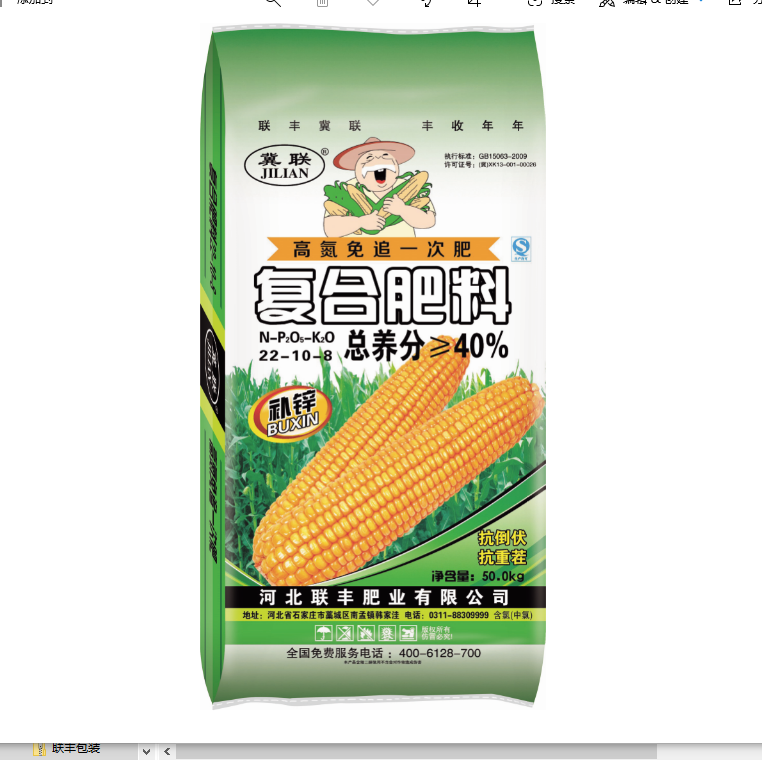
Sep . 29, 2024 01:18 Back to list
Top Suppliers of NPK 10-30-10 Fertilizer for Optimal Plant Growth
Understanding NPK 10-30-10 Fertilizer and Its Suppliers
NPK fertilizers are a popular choice among farmers and gardeners for their balanced nutrient composition. The numbers in the NPK fertilizer notation refer to the percentage of nitrogen (N), phosphorus (P), and potassium (K) present in the product. In the case of a 10-30-10 fertilizer, it contains 10% nitrogen, 30% phosphorus, and 10% potassium. This specific formulation is particularly beneficial for certain types of plants and soils, making it a valuable resource for those looking to enhance their agricultural productivity.
The Role of Each Nutrient
1. Nitrogen (N) Essential for plant growth, nitrogen promotes healthy leaf and stem development. It is a critical component of chlorophyll, the molecule responsible for photosynthesis. A nitrogen deficiency often results in yellowing leaves and stunted growth.
2. Phosphorus (P) This nutrient is vital for root development, flowering, and fruiting. It plays a critical role in energy transfer within the plant and is necessary for the formation of DNA and RNA. A high phosphorus content, such as that provided by a 30% concentration in 10-30-10 fertilizers, supports the establishment of strong root systems and is especially beneficial during the flowering and fruit-setting stages of growth.
3. Potassium (K) Potassium contributes to the overall health of the plant, improving disease resistance and enhancing water regulation within the plant. It supports the development of strong stems and enables plants to withstand stress from drought and disease. Having 10% potassium complements this fertilizer, ensuring a well-rounded supply of essential nutrients.
Benefits of NPK 10-30-10 Fertilizer
The 10-30-10 fertilizer is particularly useful for flowering plants, fruits, and vegetables. Its higher phosphorus content makes it ideal for applications aimed at boosting root growth and flowering, making it a popular choice among gardeners cultivating tomatoes, peppers, and flowering annuals. This formulation not only encourages lush blooms but also enhances the yield of edible crops.
Furthermore, using a balanced NPK fertilizer like 10-30-10 aids in correcting nutrient deficiencies in soils that may be low in phosphorus, which is commonly the case in many agricultural settings. It can effectively revitalize exhausted soils, preparing them for more productive harvests.
npk fertilizer 10 30 10 suppliers

Finding Reliable Suppliers
When looking for suppliers of NPK 10-30-10 fertilizer, it is crucial to consider several factors to ensure you receive quality products. Established suppliers often provide detailed information regarding their fertilizers, including sourcing, analysis reports, and usage recommendations.
1. Reputation Always check supplier reviews and testimonials. Reliable suppliers often have positive feedback from other customers. Recommendations from local agricultural extension offices or gardening clubs can also guide you to reputable sources.
2. Certifications Valid certifications from agricultural regulatory bodies can indicate a supplier's adherence to quality standards. These certifications can provide assurance regarding the purity and nutrient composition of the fertilizer.
3. Local vs. Online Suppliers Depending on your location, you might benefit from sourcing from local suppliers. Local businesses often understand regional soil conditions and crop needs better. However, online suppliers can offer a wider selection and the convenience of home delivery.
4. Price and Availability Compare prices between different suppliers. Be cautious of deals that seem too good to be true, as they may reflect subpar quality. Ensure that the supplier maintains a consistent inventory to avoid interruption in your fertilization schedule.
Conclusion
In conclusion, NPK 10-30-10 fertilizer is an essential tool in modern agriculture and gardening, especially for those looking to enhance root and flower development. By understanding the specific benefits of its nutrient composition and sourcing it from reputable suppliers, gardeners and farmers can maximize their crop yield and improve the health of their plants. As always, informed decisions in fertilizer application can lead to healthier soils and bountiful harvests.
-
10-10-10 Organic Fertilizer - Balanced NPK Formula
NewsAug.02,2025
-
Premium Organic Manure Compost for Eco Gardens
NewsAug.01,2025
-
Organic 10-10-10 Fertilizer | Balanced Plant Nutrients
NewsJul.31,2025
-
Premium Amino Acid Fertilizer | Rapid Plant Growth Booster
NewsJul.31,2025
-
10 10 10 Fertilizer Organic—Balanced NPK for All Plants
NewsJul.30,2025
-
Premium 10 10 10 Fertilizer Organic for Balanced Plant Growth
NewsJul.29,2025
